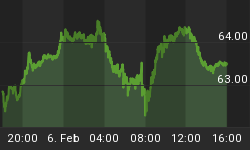Lot's of excitement yesterday. Investors were optimistic and buying on the Fed's announcement. However, those longer term, Institutional Investors were not quite as ecstatic as the average investor.
There are two concerns that Institutional investors were still not happy about:
1. An acceptable bail out package for the auto industry. For them, it is not about bailing out the industry, but about the "prevention of an escalation of job losses" which would have a horrible impact on the recession.
2. For banks to start lowering 30 year mortgage rates and START lending a lot more. This has been a major Bernanke mission and banks have not been cooperating. After yesterday, they should have dropped their rates, but they didn't. In fact, a local bank raised their interest rate from 5.0% on Monday to 5.125% yesterday. That bank sells ALL their mortgages to CitiBank and Citi sets the rates that they are supposed to charge. *** Many Institutional Investors believe that "A recessionary recovery cannot happen if the lending doors remain shut, or if banks do not pass on lending rates that were meant to be conducive to consumer borrowing under times of duress."
Let's move on to today's chart and analysis ...
Today, we will be discussing the level of NYSE New Lows in relationship to the market.
New Lows are an important indicator for investors to look at. First, spiking levels of New Lows have a definite correlation with sell-offs.
Most investors don't sell falling stocks soon enough. They then are caught in a position where they don't want to take the loss. Next, they "hope" the stock will come back. Then, they lose hope and start to panic in the belief that they will lose a lot more. It is at this point where many investors start rushing for the doors and that translates into spiking levels on New Lows.
Take a moment to view the correlation between the New Lows and the S&P 500 below. While New Highs might be associated with investor exuberance levels, New Lows can be associated with investor fear levels and the recovery from those fear levels.
But, what about AFTER a spike ... when the New Lows once again drop to low levels?
NYSE "New Lows" are meaningfully positive when they reach a level of 28 or below. Close to that is good, but not the kind of levels seen on sustainable up moves or rallies. Yesterday, the New Lows came in at 47, not quite the level you want to see.
There is another measurement to use with New Lows that is important. And, that is the Relative Strength of the NYSE or the S&P 500. To do this measurement, we use our C-RSI which is a zero-based Relative Strength indicator.
*** The correlation is quite simple. When New Lows are close to 28, AND the C-RSI is POSITIVE, then the market will move in a sustainable rally and not turn around and bite you.
*** When the New Lows are close to the 28 level, AND the C-RSI is NEGATIVE, then the market will move in a whipsawing trading range.
So, with Bernanke's enthusiasm-generating-move yesterday, what was the New Lows/C-RSI combination signaling?
Quite simply: The New Lows came in fairly close to the 28 level with a reading of 47. However, our C-RSI indicator was still negative. That was still a condition for a market trading range and not the big, unstoppable Santa Rally many are hoping for. So, for now, there is still work to be done in the markets for supportable rally conditions.
(The New Highs and New Lows charts are posted every day on our paid subscriber site.)
















